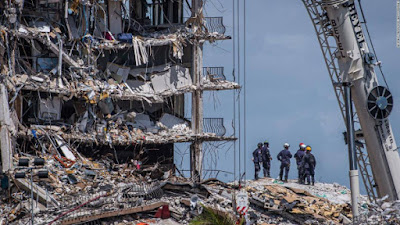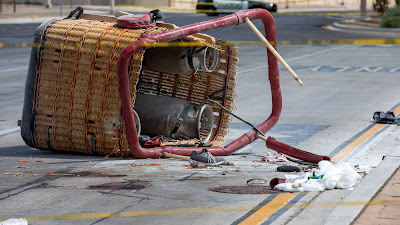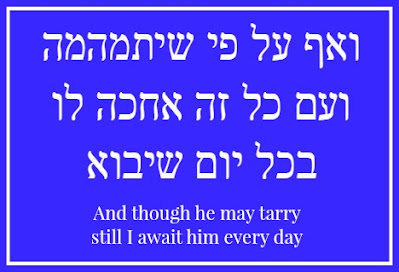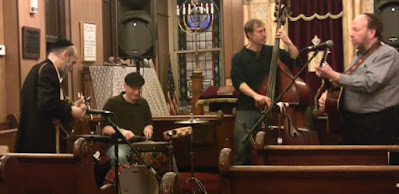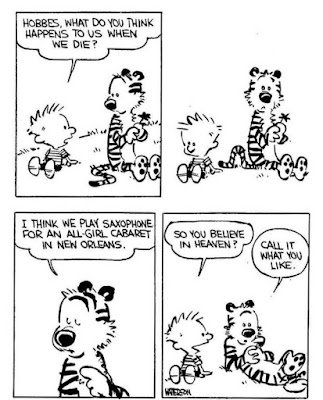That Rage in the World: Tefilat HaDerech, The Traveler's Prayer, asks for a safe journey. My Jewish Learning tells us that the prayer is said at the onset of a journey - when one embarks on a long trip, regardless of the mode of transport.
The prayer asks God to deliver the traveler safely;
to protect the traveler from any dangers or perils
the traveler may encounter along the way;
and to return the traveler in peace.
Here is the text of Tefilat HaDerech:
יְהִי רָצוֹן מִלְּפָנֶיךָ ה' אֱ-לֹהֵינוּ וֵא-לֹהֵי אֲבוֹתֵינוּ
שֶׁתּוֹלִיכֵנוּ לְשָׁלוֹם וְתַצְעִידֵנוּ לְשָׁלוֹם
וְתִסְמְכֵנוּ לְשָׁלוֹם. וְתַדְרִיכֵנוּ לְשָׁלוֹם
וְתַגִּיעֵנוּ לִמְחוֹז חֶפְצֵנוּ לְחַיִּים וּלְשִֹמְחָה וּלְשָׁלוֹם
וְתַצִּילֵנוּ מִכַּף כָּל אוֹיֵב וְאוֹרֵב
וְלִסְטִים וְחַיּוֹת רָעוֹת בַּדֶּרֶךְ
וּמִכָּל מִינֵי פֻּרְעָנִיּוֹת הַמִּתְרַגְּשׁוֹת לָבוֹא לָעוֹלָם
וְתִשְׁלַח בְּרָכָה בְּכָל מַעֲשֵֹה יָדֵינוּ
וְתִתְּנֵנוּ לְחֵן וּלְחֶסֶד וּלְרַחֲמִים
בְעֵינֶיךָ וּבְעֵינֵי כָל רוֹאֵינוּ וְתִשְׁמַע קוֹל תַּחֲנוּנֵינוּ
כִּי אֵ-ל שׁוֹמֵעַ תְּפִלָּה וְתַחֲנוּן אָתָּה
בָּרוּךְ אַתָּה ה', שׁוֹמֵעַ תְּפִלָּה
Or, in English:
May it be Your will, Lord, our God and the God of our ancestors,
that You lead us toward peace, guide our footsteps toward peace,
and make us reach our desired destination
for life, gladness, and peace.
May You rescue us from the hand of every foe,
ambush, and wild beast along the way,
and from all types of calamities that rage in the world.
May You send blessing in our handiwork, and grant us grace, kindness,
and mercy in Your eyes and in the eyes of all who see us.
May You hear the sound of our humble request because
You are God Who hears prayer requests.
Blessed are You, Lord, Who hears prayer.
Abq Jew has always found that this phrase holds an especially poignant appeal:
וּמִכָּל מִינֵי פֻּרְעָנִיּוֹת הַמִּתְרַגְּשׁוֹת לָבוֹא לָעוֹלָם
and from all types of calamities that rage in the world
For all types of calamities certainly do rage in the world. And this past week. as we all know, has been one of rage: calamity after calamity, tragedy after tragedy.
On June 24, 2021, at approximately 1:30 a.m. EDT, Champlain Towers South, a 12-story beachfront condominium building in the Miami suburb of Surfside, Florida, partially collapsed. At least 11 dead have been identified and 11 others were injured.
About 35 people were rescued from the uncollapsed portion of the building, two people have been rescued from the rubble, and 150 people remain missing as rescue operations continue.
This calamity, Abq Jew hopes, did not affect any of us directly. And yet - the suddenness, the warninglessness, the middle-of-the-nightness. People just like us going to bed at night and expecting to wake up in the morning. Tefilat HaDerech? No one knew they were going on a journey; certainly not the final one.
Instead, the Bedtime Shema:
May it be Your will, Lord my God and God of my ancestors,
that I lie down in peace and that I arise in peace.
Let my sleep be undisturbed by troubling thoughts, bad dreams,
and wicked schemes. May I have a night of tranquil slumber.
May I awaken to the light of a new day,
that my eyes may behold the splendor of Your light.
God is a faithful King.
שׁמע ישׂראל ה׳ אלקינו ה׳ אחד
Hear, O Israel: the Lord our God, the Lord is One.
Praised be His glorious sovereignty throughout all time.
Then, the hot-air balloon crash in Albuquerque. Wikipedia reports:
On June 26, 2021, a hot-air balloon crashed in the city of Albuquerque, New Mexico, United States, near the intersection of Central Avenue and Unser Boulevard after it touched a power line, killing five people.
The balloon was carrying three men (including pilot) and two women. The balloon made contact with a power line, causing the basket to detach from the balloon and fall about 100 feet (30 meters) before crashing and catching fire. All five people on board died as a result of the accident.
This calamity too, Abq Jew hopes, did not affect any of us directly. And yet - the suddenness, the warninglessness, the middle-of-joyness. People just like us going to experience excitement in the morning and expecting to celebrate the day in the evening. Tefilat HaDerech? All knew they were going on a journey; none knew it would be the final one.
And finally (please God!), the observance of the Fast of the 17th of Tammuz all over the Jewish world. Wikipedia reports:
The Seventeenth of Tammuz (Hebrew: שבעה עשר בתמוז Shivah Asar b'Tammuz) is a Jewish fast day commemorating the breach of the walls of Jerusalem before the destruction of the Second Temple.The Seventeenth of Tammuz (Hebrew: שבעה עשר בתמוז Shivah Asar b'Tammuz) is a Jewish fast day commemorating the breach of the walls of Jerusalem before the destruction of the Second Temple.
It falls on the 17th day of the 4th Hebrew month of Tammuz and marks the beginning of the three-week mourning period leading up to Tisha b'Av.The day also traditionally commemorates the destruction of the two tablets of the Ten Commandments and other historical calamities that befell the Jewish people on the same date.
This calamity, Abq Jew knows, has affected us all directly. And yet - the distance in time and place allows us to forget. Unless we purposefully remember, through fasting or in other ways. People just like us experiencing sorrow, and mourning the day through the evening.
Despite our prayers - over many centuries, in many different lands - our journey has indeed been long. May this be the last time we need mourn for Jerusalem and what might have been.
And thus began The Three Weeks.



